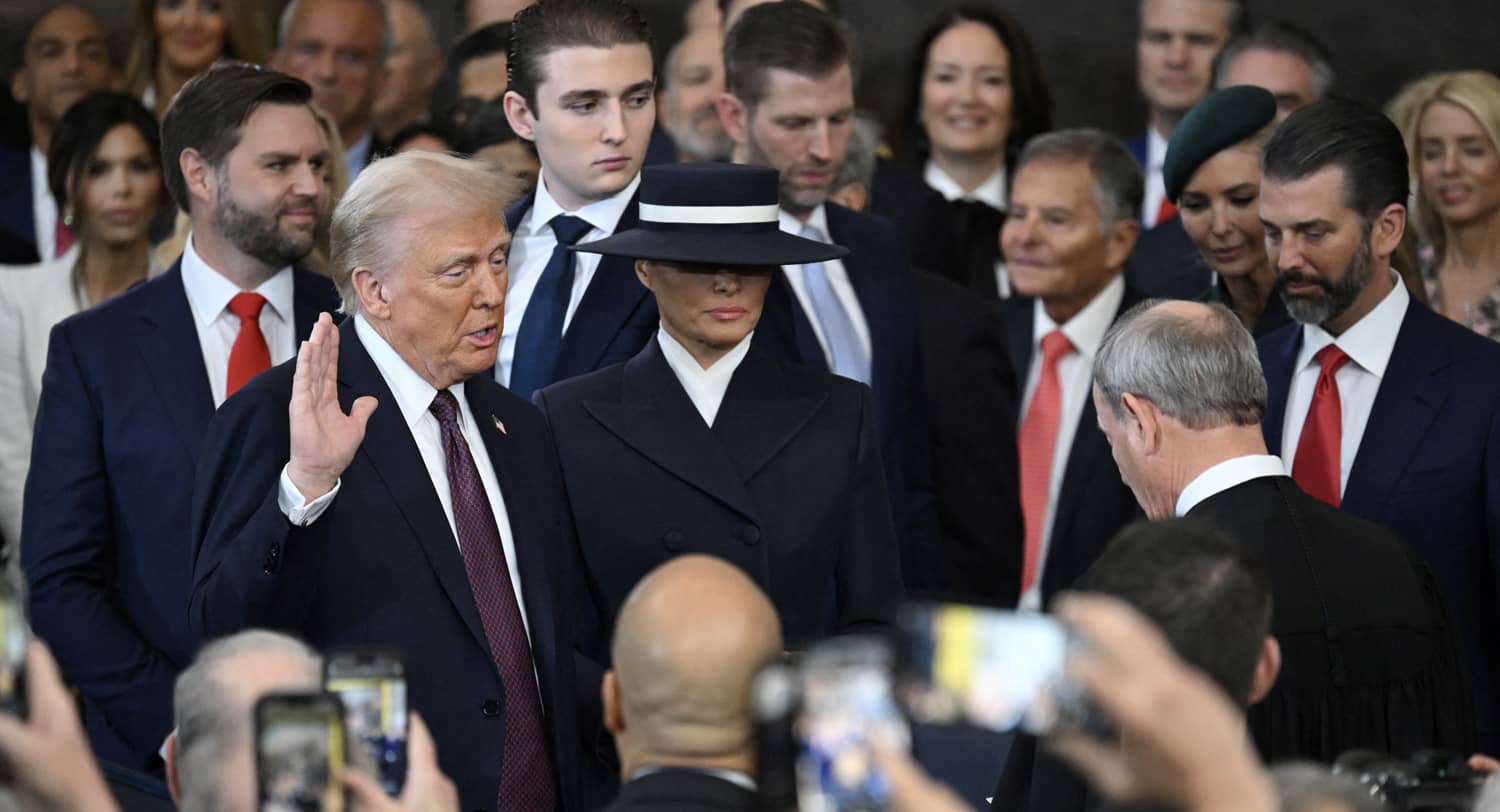Not since Grover Cleveland won non-consecutive terms in 1884 and 1892 has an American president duplicated this feat. Now Donald Trump, at 78 years old, has come back to win a second term. With it, he has loomed large over American politics for well over a decade.
Will Trump’s second term become a success? Or will it, like Cleveland’s, turn into a cautionary tale? In his inaugural address, Trump indicated that his years away from office have not altered his approach to national politics. If anything, he has been emboldened by his comeback, having been “saved by God to make America great again.” He expounded upon his conviction, first expressed after his victory in November over former Vice President Kamala Harris, that America is about to experience “a golden age” and “thrilling new era of national success.” Indeed, terming it a “Day of Liberation,” Trump explained that he would undo many of the policies that President Joe Biden had enacted via executive order.
Much of Trump’s focus was on domestic policy. “My recent election,” he said, “is a mandate to completely and totally reverse a horrible betrayal, and all of these betrayals that have taken place, and to give the American people back their faith, their wealth, their democracy and indeed their freedom.” He would sign executive orders on everything from tariffs to deportations. He promised the establishment of an “External Revenue Service” that would implement sweeping tariffs on foreign countries, rendering America as wealthy as it had been during the McKinley era at the turn of the twentieth century, when President William McKinley instituted tariffs to help build up and protect American industry.
When it came to deporting illegal immigrants (“criminals” he termed them), he said, “we will do it at a level nobody has ever seen before.” He also took aim at Biden’s Green New Deal, stating that he would declare a “national energy emergency” that rescinded any mandate to produce electric vehicles.
Trump made it plain that he was nettled by the numerous last-minute preemptive pardons issued by Biden, including to siblings and other members of the Biden family. He reserved special animus for former Congresswoman Liz Cheney who had sought to lead a Republican splinter group against him, and Mark Milley, the former chairman of the Joint Chiefs of Staff who during the recent election campaign had called Trump “a fascist to the core.” In remarks at Emancipation Hall, he lashed into both Cheney and Milley. He was able to have Milley’s official portrait removed, which was unveiled 10 days ago at the Pentagon. At the same time, Trump has made it plain that he intends to pardon or commute the sentences of many of those tried and convicted for attacking Congress on January 6, 2020.
For much of his inauguration address, foreign affairs took a backseat. Overall, Trump seeks to contrast Biden’s putative weakness with his ability, like that of Ronald Reagan, to restore America’s prowess, both economic and military. “During every single day of the Trump administration,” he said, “I will very simply put America first.”
This has been his consistent theme since he first unveiled his foreign policy doctrine in a March 2016 speech during the Republican primary at the Mayflower Hotel in Washington, DC. At the inauguration, Trump said that he wants to serve as “peacemaker” and stressed that he would return to policies of “manifest destiny” and that America would become a “growing nation.”
Details were few, but he offered several symbolic steps. He would change the name of the Gulf of Mexico to the Gulf of America. He would restore the former name of the highest peak in North America, located in Alaska – which Obama had renamed Denali – to Mount McKinley. And in a step potentially more substantive than symbolic, he suggested that he was prepared to reclaim the Panama Canal. The US opened the canal in 1914 and granted it to Panama in a treaty signed under Jimmy Carter. “We have been treated very badly from this foolish gift that should have never been made and Panama’s promise to us has been broken,” he averred. He continued, “We’re taking it back!” Panamanian President Jose Raul Mulino countered that “I must fully reject the statements by President Donald Trump regarding Panama and its Canal in his inaugural address.”
Now that he is president, Trump will have to confront a welter of issues and threats. The confirmation of Senator Marco Rubio as Trump’s secretary of state and John Ratcliffe for CIA director means that his senior national security team will largely be in place as he begins his presidency. The ball is in Trump’s court. He, and he alone, will bear the primary responsibility for America’s course at home and abroad.

